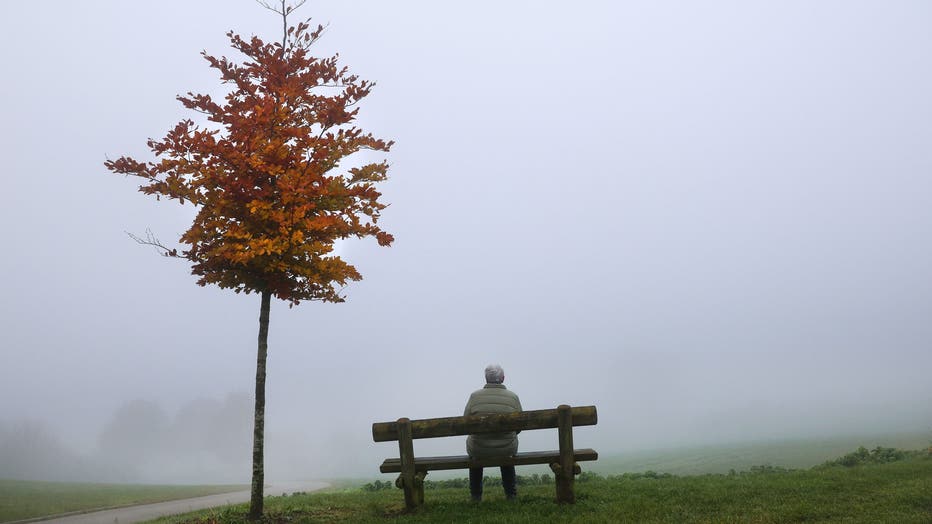Loneliness linked to increased risk of dementia, cognitive decline: study
Seniors snuggle with robotic pets to beat loneliness
Video from the New York State Office for the Aging shows older adults' reactions to getting a new pet -- one they don't have to feed or walk.
Loneliness has been increasingly linked to heart attacks, strokes and other poor health outcomes, and now a new study shows it also raises the risk of dementia and cognitive impairment.
According to a meta-analysis – a combination of data from several studies – published in Nature Mental Health in October, feeling lonely can increase the risk for dementia of any cause by 31% and general cognitive impairment by 15%.
The large study analyzed more than 600,000 people across 21 population cohorts in the U.S. and several other countries. Loneliness was an issue even after taking other risk factors into account, like obesity and diabetes.
RELATED: Here's what worried parents are doing to help make sure their kids have friends
"We may not yet have a cure for Alzheimer’s disease and other types of dementia, but we do have a cure for loneliness," Joel Salinas, a clinical assistant professor of neurology and chief medical officer at Isaac Health, told The Washington Post. "It’s a matter of helping to support people — asking if they need anything, being available to listen — and that’s something we’re all empowered to do."
The findings aren’t surprising given the emerging research linking loneliness to poor health. The U.S. Surgeon General declared loneliness a health epidemic in 2023 and said it’s as deadly as smoking a dozen cigarettes a day.
RELATED: US surgeon general names parent stress an 'urgent public health issue'
"We now know that loneliness is a common feeling that many people experience. It's like hunger or thirst. It's a feeling the body sends us when something we need for survival is missing," Surgeon General Vivek Murthy told The Associated Press in a 2023 interview. "Millions of people in America are struggling in the shadows, and that's not right. That's why I issued this advisory to pull back the curtain on a struggle that too many people are experiencing."
About half of U.S. adults say they’ve experienced loneliness, the surgeon’s general report found.
Loneliness defined

FILE - Loneliness has been increasingly linked to poor outcomes, especially in older people. (Photo by Thomas Warnack/picture alliance via Getty Images)
Loneliness is different from being alone or isolated, the study’s authors wrote.
"People can feel lonely even when with others if the quality or quantity of their social connections does not meet what is needed or desired," the study says.
Research shows that Americans, who have become less engaged with worship houses, community organizations and even their own family members in recent decades, have steadily reported an increase in feelings of loneliness. The number of single households has also doubled over the last 60 years.
RELATED: ‘Heartbreaking’ hoarding disorder rises as America ages, according to new Senate report
But the crisis drastically deepened when COVID-19 spread, prompting schools and workplaces to shut their doors and sending millions of Americans to isolate at home away from relatives or friends.
Technology – social media, in particular – has rapidly exacerbated the loneliness problem, with one study finding that people who used social media for two hours or more daily were more than twice as likely to report feeling socially isolated than those who were on such apps for less than 30 minutes a day.
"There's really no substitute for in-person interaction," Murthy said.

